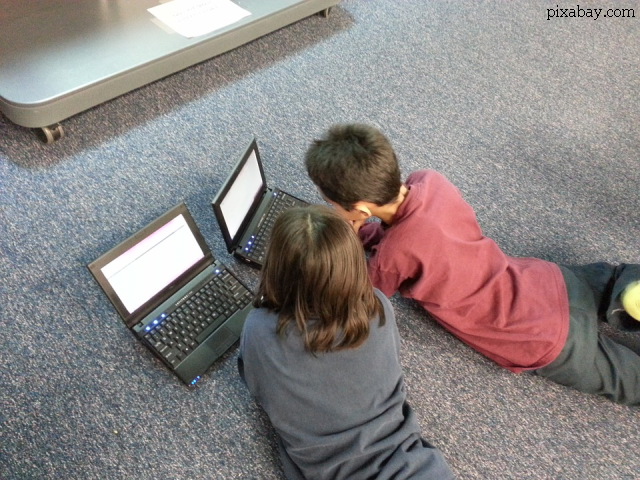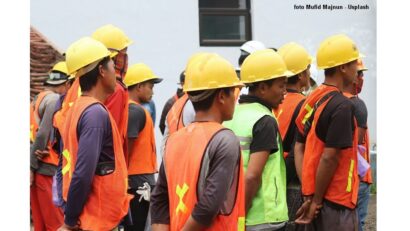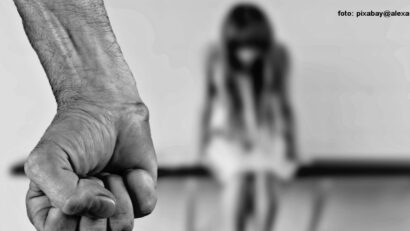Combating Child Pornography
Save the Children organization sounds the alarm on the risks children are currently exposed to while using the Internet

România Internațional, 04.03.2020, 13:00
Last year the organization launched a study, which revealed
worrying aspects first related to the time children are spending online. George
Roman, programme director with the aforementioned organization has more on this
issue.
George Roman: It was a surprise to us as well since we
didn’t expect to find out that during weekdays, children are spending between 4
and 6 hours online on an average. They spend more time at weekends when they
also watch TV programmes. We’ve noticed that these children may develop mental
issues, such as forms of depression, anxiety, and are also displeased to have
social relations. The study reveals the fact that one out of two children have
been victims of cyber-bullying and that 6 out of 10 have been exposed to
inappropriate content. We don’t know how this situation is going to improve in
the future but what we know is that we can raise the awareness of these
children and make them realize they need assistance from adults.
Save the Children organization also has a hotline where
illegal online content can be reported at esc_ABUZ within a project entitled
‘Internet Hours’. Statistics show that illegal materials reported here are on
the rise. Out of the 2713 cases reported last year, 1600 involved materials
depicting sexually-abused children, most of the victims being girls under 10
years old. Teodora Stoica, project manager with the Save the Children
Organisation explains how these materials have proliferated in Romania in the
past year.
Teodora Stoica: According
to the latest study conducted by our organization, 4 out of 10 children with
ages between 12 and 17 years have been exposed to sexually explicit content.
Moreover, 20% of them say they have been requested to send images or videos
with their intimate body parts. Cyber-bullying, which is one of the way through
which these pictures or videos are being obtained, has largely contributed to
the proliferation of these materials online. And technological progress makes
possible the appearance of new types of cyber-crimes, being easier than ever
for an offender to get in touch with children nowadays. One of the most serious
challenges facing the online environment is to prevent the sexploitation of
children…According to INHOPE, Romania is ranking 7th on a EU list of
countries where suchlike inappropriate content is posted and from the reports
received, we’ve noticed that although most sex abusers are men, the number of
materials in which women are abusing children is also on the rise.
The esc-Abuz hotline has been functioning in cooperation
with the General Inspectorate of the Romanian Police being also part of INHOPE,
an international network of organizations and institutions fighting this
scourge.
In this way, online materials, which are harmful for
children, are being sent to the Romanian Police, where they are investigated
and erased from the Internet, while offenders are identified and prosecuted.
According to Elena Savu, head of the Bureau for the
Investigation of Child Pornography Online, 398 criminal files related to child
pornography were reported in Romania last year, and 277 of these were solved.
168 sting operations were conducted and 261 home-search operations were carried
out; 296 people were placed under investigation and over 20 million photo-video
files were analyzed. Elena Savu says that live-streaming videos of child sexual
abuse is the latest tendency in this phenomenon.
Elena Savu: The most sensitive cases, which
unfortunately are on the rise in Romania as well, are these cases of live
streaming. They involve women who used to perform in video-chats. They decided to
make their children participate in these shows for various sums of money and
are currently use various apps to broadcast these videos live.
Since 2010, Save the Children has been running a project
entitled ‘Internet Hours, which is promoting a safer use of the Internet and
new online technologies by children. The project has brought together a network
of volunteers, teachers and experts who are working with children with a view
to implementing a series of educational programmes nation wise. Here is Georgiana
Rosculet, coordinator of educational programmes with the aforementioned
organization.
Georgiana Rosculet:
The specific themes we are approaching
this year are cyberbullying and Internet Addiction. This programme of
volunteering is mainly addressing teachers who are willing to talk with
children about these phenomena. They can apply for information materials and
video packages, guidelines for a better understanding of these phenomena and
then they can opt for various lesson plans that we have suggested. As part of
the ‘Internet Hours’ we have a hotline for children, so they can call in
whenever they are curious about various aspects of Internet surfing or may find
themselves in delicate situations. Half million children have benefited from
this project in the past 10 years. We have about 4,000 volunteers, teachers in
800 cities and we have so far cooperated with 28 hundred education centers. We
are going to carry out a certified programme for teachers, a training
programme, which is going to be implemented in 41 counties.
Experts with the Save the Children organization have
cautioned that all over the world, authorities have become more relaxed
regarding this phenomenon, and that relaxation makes the number of those
involved in activities, like buying, storing or trading child pornography, to
be on the rise.
(translated by bill)






























